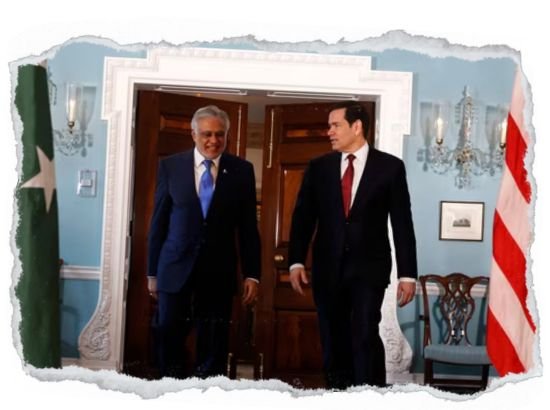
In a significant diplomatic shift, Pakistan has softened its stance on The Resistance Front (TRF), the terror group that claimed responsibility for the recent Pahalgam attack in Jammu & Kashmir. Speaking in Washington D.C., Pakistan’s Foreign Minister Ishaq Dar told reporters that Pakistan has “no objection” to the United States adding TRF to its list of terrorist organizations, a move both India and the U.S. have been advocating.
However, while endorsing the potential listing, Dar simultaneously tried to distance TRF from any ties with Pakistan-based Lashkar-e-Taiba (LeT)—a known global terror outfit. Both India and the United States firmly believe TRF is a proxy group of LeT, used to claim attacks in Kashmir while masking the involvement of state-backed entities.
“We welcome it. If TRF is involved and there is evidence against them, then it’s right for a sovereign nation like the United States to designate them,” Dar said during his U.S. visit, where he also met U.S. Secretary Marco Rubio.
Dar’s language marks a departure from Pakistan’s earlier opposition to any international reference to TRF. However, he was careful to state that Pakistan had already “eliminated” TRF from within its borders. “The organization was dismantled long ago. Those involved were punished, arrested, and jailed,” he added.
Still, this narrative contradicts past Pakistani positions, where officials denied any TRF or LeT involvement in Kashmir attacks. Critics call it a familiar pattern of public denial coupled with tacit backing for proxies.
Interestingly, this isn’t Dar’s first statement on the matter. He earlier revealed to Pakistan’s Parliament that Islamabad had deliberately blocked TRF’s mention in a United Nations Security Council resolution condemning the Pahalgam attack. “I received calls from all over the world, but we did not accept it,” he boasted. “TRF was removed, and Pakistan prevailed.”
Dar had even said that more evidence would be required for Pakistan to take any additional action against TRF or its networks.
The U.S. and India have consistently raised alarm over Pakistan’s use of “front groups” like TRF to continue cross-border terrorism while evading direct culpability. With pressure mounting from Washington, Islamabad’s diplomatic recalibration may be an effort to deflect global scrutiny, especially as financial oversight bodies and international forums increase scrutiny on Pakistan’s counter-terrorism commitments.
But many experts remain skeptical. While the symbolic endorsement of the U.S. listing is a notable shift, Pakistan’s continued reluctance to admit TRF’s LeT links keeps serious doubts alive.